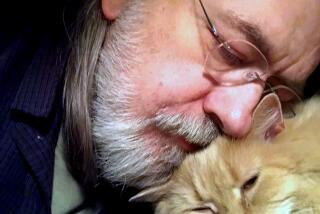Fundamentalism for adults only
I USED TO BE an atheist, until I discovered fundamentalism. What happened is this: Earlier this year, I delivered to my publishers a book that made the argument that the Enlightenment had gone dark behind the blackout of modernity, liberal humanism had collapsed, and most of us who were not swept into the benightedness of religious fundamentalism were colluding in or coerced into what I called the “new infantilization.” Corporations, governments, the entertainment industry, advertising, the media in general and a whole metropolis of plague-ridden houses were, I argued, treating us like children, and we were going along with it, clutching with damp, sticky fingers at the latest sop or trinket.
But I was unable to leave it there. The fundamentalists too, I declared, were infantile, infantilized and infantilizing. In fact, religion itself -- not just the fundamentalist sort -- was as infantile as it could be. Believing that a dead Jewish dissident knew who they were and cared what they did! Believing that when they died, they didn’t die if they had thought the right things, had eaten the right special foods and had slept with only the right sort of people! Believing not only that there was a God, but that God loved them, when anyone who had read anything at all about God could have told them that the conclusion was not so readily foregone!
It wasn’t that it was absurd; it was infantile. Santa Claus, the Tooth Fairy, Mister Whippy, Jesus: They all belonged in the same category, I argued, except that the first three were fictional but delivered, and the last was fictional and didn’t. Not, at least, until you were dead. And in order to believe that God would deliver when you were dead, you had to first believe that when you were dead, you didn’t actually die, and the only way you could believe that, despite all the evidence, was to believe in God. No grown-up would argue like that, or fall for that sort of faulty reasoning. QED.
But in retrospect, I may have been wrong. Fundamentalism -- at least in the Islamic and Christian senses, the two baleful forms that glare hatred at each other across the world -- is a far more complex mixture of behaviors than simply babyish.
In its intolerance of dissent, its desperate certainties, its bullies and its bosses; in its inability to make sense of the world without fantasies, ghosts and imaginary but clearly delineated imaginary friends; in its emotional lability, its tantrums, its collective egocentricity and its horror of the liminal or ambiguous -- in all these ways, the fundamentalist mind is indeed infantile.
But in other ways it shows all the signs of a profoundly adult discipline and asceticism.
Fundamentalism is patient; it takes the long view; it meticulously pores over its few narrow texts and abjures all distractions and pleasures; above all, it defers its gratification to beyond the end of life. These are not things infants do. To dismiss fundamentalists as gullible, silly children is to make a severe error of judgment. And it is not an error we can afford to make.
The problem right now is not that infantile imaginations are trying to reduce God to their own diminished, bite-sized understanding. The problem is that at the core of fundamentalism what one truly worships is not God but a text. It is a text justified by question-begging (“This text is holy because it is the word of God; we know it is the word of God because it says so in the text, and a holy text cannot lie”), but a text all the same.
The difficulty is in how to oppose it. Scientific texts are all too often fundamentalist, and their assertions either tautological (as in Darwin, in which “survival of the fittest” means simply “what survives is what survives”) or articles of faith (it is no easier for the layman to believe in “double-dark” theory than in the cosmology of Genesis). What is the difference, for the reader, between declaring that “God, who is ineffable, says so” and declaring that “scientists, who you will never understand, say so”? Both are appeals to faith. True, we can see the scientists -- Look! There they are, at conferences! Arguing! -- but the religious fundamentalist will assert that he can, just as plainly, see God.
Nor will it do to fall back on the old saw that science “delivers results.” It delivers intellectual results within its own paradigm, but so does religion. It delivers technological results, but science has no more delivered Bach than Christianity delivered Teflon.
I have a nasty fear that it is the stern, committed atheism, admitting of no doubt, which I am now tentatively recanting, that was truly infantile in its attempt to deny epistemological complexity and ambiguity. In the face of fundamentalism, it seems important to accept, however reluctantly, that there are at least two valid ways of thinking, one that is accessible to a sort of empirical scientism, the other that is not. Both deliver forms of knowledge, but, like counterpoint and spot-welding, they are different categories of thing.
Not to acknowledge this, but instead to cling to a specific and oppositional atheism, would, I suspect, make me the infantile one. And I can’t be having that.
More to Read
Sign up for our Book Club newsletter
Get the latest news, events and more from the Los Angeles Times Book Club, and help us get L.A. reading and talking.
You may occasionally receive promotional content from the Los Angeles Times.






